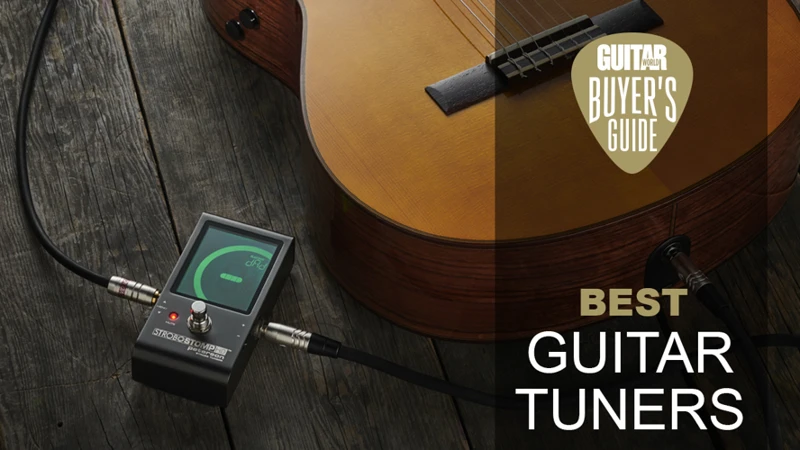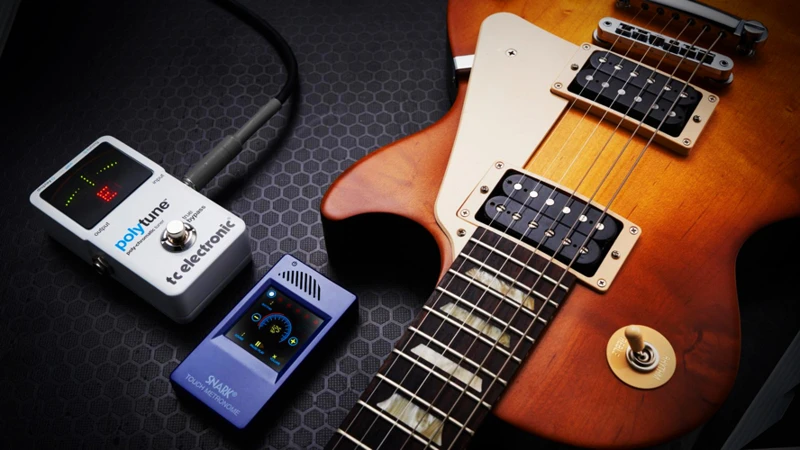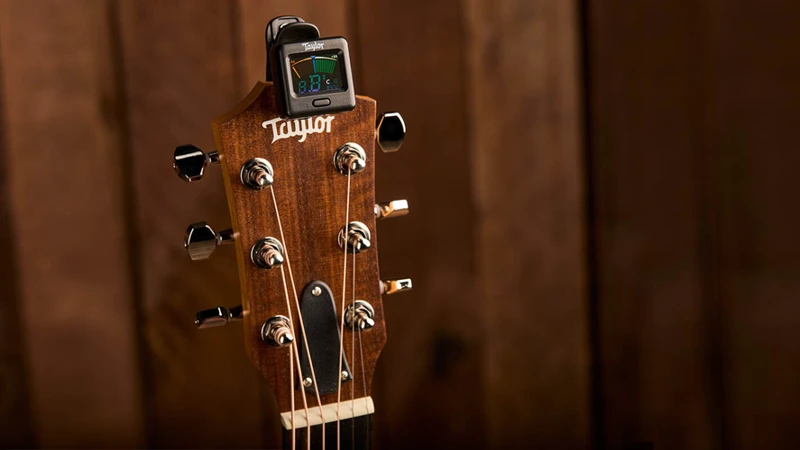Acoustic guitars are known for their beautiful, natural sound that resonates through the wood and strings. However, even the best acoustic guitars can fall out of tune due to various factors such as changes in temperature, humidity, or simply regular playing. That’s where a good tuner comes in handy. A tuner helps you keep your acoustic guitar in tune, ensuring that you always sound your best. In this article, we will explore the best tuners available for acoustic guitars, helping you find the perfect one to suit your needs and budget.
The Importance of a Good Tuner
Tuning your acoustic guitar is one of the most basic yet essential aspects of playing. A well-tuned guitar not only sounds better but also makes it easier to play in tune with others. A good tuner can save you time and frustration by quickly and accurately helping you tune your guitar before practice, recording, or performance.
Types of Guitar Tuners
There are several types of tuners available for acoustic guitars, each with its own advantages and disadvantages. The most common types include:
Clip-On Tuners
Clip-on tuners are small devices that clip onto the headstock of your guitar. They detect the vibrations of the guitar’s strings and display the pitch on a screen. Clip-on tuners are convenient, portable, and easy to use, making them a popular choice among guitarists.
Pedal Tuners
Pedal tuners are larger devices that sit on the floor and are operated by foot. They are commonly used by electric guitarists but can also be used with acoustic guitars. Pedal tuners are great for live performances as they can be easily accessed and are often built to be durable.
Soundhole Tuners
Soundhole tuners are placed inside the soundhole of the guitar and tune the instrument based on the vibrations of the strings. They are discreet and do not require any clipping onto the headstock. Soundhole tuners are great for players who prefer a more inconspicuous tuning solution.
App-Based Tuners
With the rise of smartphone technology, app-based tuners have become increasingly popular. These tuners use the microphone of your smartphone to detect the pitch of your guitar strings. While convenient and often free or low-cost, app-based tuners may not always be as accurate as dedicated hardware tuners.
Top Tuners for Acoustic Guitars
Now that we’ve covered the importance of having a good tuner and the different types available, let’s take a look at some of the best tuners specifically designed for acoustic guitars:
1. Snark SN-5X Clip-On Tuner
The Snark SN-5X is a popular choice among acoustic guitarists for its accuracy and ease of use. This clip-on tuner features a bright display that can be easily read even in dimly lit environments. It offers fast and precise tuning, making it a reliable tool for both beginners and experienced players.
2. TC Electronic Polytune 3 Mini
The TC Electronic Polytune 3 Mini is a compact pedal tuner that offers polyphonic tuning, allowing you to tune all strings at once. It features a bright display and true bypass, ensuring that your tone remains unaffected when the tuner is engaged. The Polytune 3 Mini is a versatile tuner that is suitable for both acoustic and electric guitars.
3. D’Addario NS Micro Soundhole Tuner
The D’Addario NS Micro Soundhole Tuner is a discreet and accurate tuner that sits inside the soundhole of your guitar. It features a bright display that can be easily seen from different angles. The NS Micro is easy to install and remove, making it a convenient option for players who prefer a non-invasive tuning solution.
4. BOSS TU-3 Chromatic Pedal Tuner
The BOSS TU-3 Chromatic Pedal Tuner is a rugged and reliable tuner that is suitable for use on both acoustic and electric guitars. It features a high-brightness mode that enhances visibility even in outdoor settings. The TU-3 is built to last, making it a great investment for gigging musicians.
5. Fender FT-2 Pro Clip-On Tuner
The Fender FT-2 Pro Clip-On Tuner is a versatile tuner that offers precise tuning for acoustic guitars. It features a dual-hinged design that allows for easy viewing from different angles. The FT-2 Pro is compact and portable, making it a great choice for musicians on the go.
6. Peterson StroboClip HD Clip-On Tuner
The Peterson StroboClip HD is a high-definition clip-on tuner that offers unparalleled tuning accuracy. It features a high-definition display that provides precise feedback on your tuning adjustments. The StroboClip HD is a professional-grade tuner that is perfect for musicians who demand the highest level of accuracy.
7. Korg Pitchblack Advance Pedal Tuner
The Korg Pitchblack Advance is a compact pedal tuner that offers fast and accurate tuning for acoustic guitars. It features a large, easy-to-read display and true bypass switching for maintaining your tone integrity. The Pitchblack Advance is a reliable tuner that is suitable for both studio and live performance settings.
8. Planet Waves PW-CT-12 NS Micro Headstock Tuner
The Planet Waves PW-CT-12 NS Micro Headstock Tuner is a discreet tuner that attaches to the back of your guitar’s headstock. It features a multi-color display that indicates tuning status at a glance. The NS Micro Headstock Tuner is compact and lightweight, making it a great choice for players who prefer a minimalist setup.
9. Snark ST-8 Super Tight Clip-On Tuner
The Snark ST-8 Super Tight Clip-On Tuner is known for its fast response and high level of accuracy. It features a bright and colorful display that can be easily seen from different angles. The ST-8 Super Tight is a reliable tuner that is great for fine-tuning your acoustic guitar’s intonation.
10. D’Addario Planet Waves NS Micro Clip-Free Tuner
The D’Addario Planet Waves NS Micro Clip-Free Tuner is a compact tuner that attaches to the instrument’s headstock using a non-marring, non-invasive mounting mechanism. It features a bright, multi-color display that provides quick and accurate tuning feedback. The NS Micro Clip-Free Tuner is a great choice for players who want a tuner that is easy to use and won’t leave any marks on their guitar.
Looking for the perfect gear for your country music setup? Check out our articles on the best strings for acoustic guitar in country music, best strings for country guitar, best wood combinations for country guitar, best electric guitars for country music, and best banjo tuners for all your musical needs!
Conclusion
Finding the best tuner for your acoustic guitar is essential for maintaining your instrument’s sound and playability. Whether you prefer a clip-on tuner for its convenience, a pedal tuner for its durability, or a soundhole tuner for its discreetness, there are plenty of options available to suit your needs. Consider factors such as accuracy, ease of use, and portability when choosing a tuner for your acoustic guitar. With the right tuner in your arsenal, you can ensure that your guitar always stays in tune, allowing you to focus on making beautiful music.



